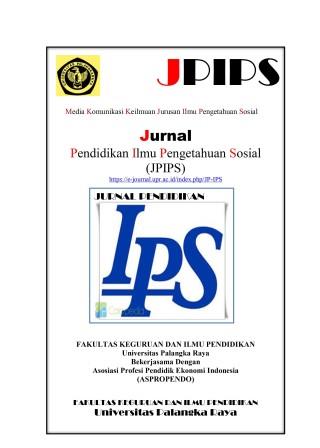Kepemimpinan Kepala Sekolah Terhadap Manajemen Berbasis Sekolah Di SMP Negeri Satu Atap 1 Kotawaringin Lama Kabupaten Kotawaringin Barat
DOI:
https://doi.org/10.37304/jpips.v14i1.4730Keywords:
Leadership, Principal, School Based ManagementAbstract
One of the educational problems facing our nation is the quality of education. Various efforts have been made to improve the quality of national education, among others through various training and improvement of teacher competence, procurement of books and learning tools, improvement of educational advice and infrastructure, and improving the quality of school management. Leadership is one of the factors that determine the success of SBM implementation. This study uses a qualitative approach in the form of a descriptive. The use of descriptive methods in this study with the aim of describing an activity of implementing the principal's leadership in implementing school-based management which first analyzes the implementation process. Sources of data in this study using primary data and secondary data. Primary data are various information and information obtained directly from the source, namely the parties who are used as research informants with a total of 6 people. While secondary data are various theories and information obtained indirectly from the source. Data collection techniques are interviews, observations, and documentation. The data analysis technique used is data collection, data reduction, data presentation, and conclusion drawing. The results of the study indicate that the leadership applied at SMP Negeri One Roof 1 Kotawaringi Lama uses a participatory leadership style with joint decision leadership, so that in the implementation of School-Based Management all school managers are given the freedom to design and establish school regulations together, both teachers, principals. Schools and school committees. The principal's leadership in school-based management at the One Roof State Junior High School 1 Kotawaringin Lama has also been running smoothly, although there are several obstacles but they can still be resolved by consulting with teachers and other school managers so that they can be resolved and resolved
Downloads
References
Azis, Abdul. (2011). Kepemimpinan Kepala Sekolah Dalam Implementasi Manajemen Berbasis Sekolah Di SMA AL-MASTHURIYAH, https://www.academia.edu/27906452/SKRIPSI_KEPEMIMPINAN_KEPALA_SEKOLAH_DALAM_IMPLEMENTASI, diakses pada 23 Januari 2020 pukul 21.23.
Dinas Pendidikan Dasar Prov. DKI Jakarta. (2004). Manajemen Peningkatan Mutu Berbasis Sekolah.
Maisyaroh, Burhanuddin. Ali Imron. (2004). Perspektif Manajemen Pendidikan Berbasis Sekolah, Malang: Penerbit UM.
Mulyasa, E. (2002). Manajemen Berbasis Sekolah; Konsep, Strategi, dan Implementasi. Bandung: Rosda.
Mulyasa, E. (2003). Menjadi Kepala Sekolah Profesional, PT. Remaja Rosdakarya, Bandung.
Mulyasa, E. (2013). Manajemen dan Kepemimpinan Kepala Sekolah. Jakarta: Bumi Aksara.
Sujanto, Bedjo. (2009). Manajemen Pendidikan Berbasis Sekolah Model Pengelolaan Sekolah Di Era Otonomi Daerah, Jakarta: Anggota IKAPI.
Sogi Hermanto, Alexandro, Rinto. (2016). Peran Kepemimpinan Kepala Sekolah Dalam Meningkatkan Mutu Pendidikan. Jurnal Pendidikan Ilmu Pengetahuan Sosial (JPIPS). Vol 6 No 2 Hal. 132-140. https://e-journal.upr.ac.id/index.php/JP-IPS/article/view/3205.
Umiarso & Imam Gojali. (2011). Manajemen Mutu Sekolah Di Era Otonomi Pendidikan, Jogjakarta: IRCiSoD.
Umedi. (2004). Manajemen Mutu Berbasis Sekolah/Madrasah (MMBS/M). Jakarta: Pusat Kajian Mutu Pendidikan.
Wibowo, Waspodo Ari. (2018). Peran Kepemimpinan Kepala Sekolah dalam Implementasi Manajemen Berbasis Sekolah di SMA Negeri 1 Pesisir Tengah Kabupaten Pesisir Barat,http://digilib.unila.ac.id/32387/26/3.%20TESIS%20TANPA%20BAB%20PEMBAHASAN.pdf, diakses pada 20 Februari 2020 pukul 18.29.
Wawan Nopardo Andika Saputra, Jairi Jairi, Sri Rohaetin. (2019). Upaya Kepala Sekolah Dalam Meningkatkan Profesionalisme Guru Di SMA Negeri 1 Tewang Sangalang Garing Kabupaten Katingan. Jurnal Pendidikan Ilmu Pengetahuan Sosial (JPIPS). Vol 11 no 2. Hal 270-277. https://e-journal.upr.ac.id/index.php/JP-IPS/article/view/511.














